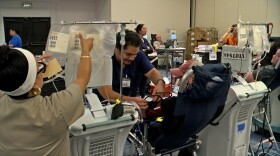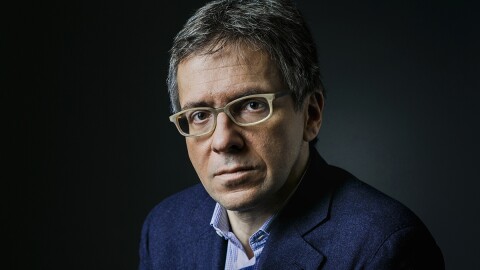
Lorie Hearn
Executive Director and Editor of inewsourceLorie Hearn is the executive director and editor of inewsource. She founded inewsource (formerly called the Watchdog Institute) in the summer of 2009, following a successful 35-year reporting and editing career in newspapers. She retired from The San Diego Union-Tribune, where she had been a reporter, Metro Editor and finally the senior editor for Metro and Watchdog Journalism. In addition to department oversight, Hearn personally managed a four-person watchdog team, composed of two data specialists and two investigative reporters. Hearn was a Nieman Foundation fellow at Harvard University in 1994-95. She focused on juvenile justice and drug control policy, a natural course to follow her years as a courts and legal affairs reporter at the San Diego Union and then the Union-Tribune. Hearn became Metro Editor in 1999 and oversaw regional and city news coverage, which included the city of San Diego’s financial debacle and near bankruptcy. Reporters and editors on Metro during her tenure were part of the Pulitzer Prize-winning stories that exposed Congressman Randy “Duke” Cunningham and led to his imprisonment. Hearn began her journalism career as a reporter for the Bucks County Courier Times, a small daily outside of Philadelphia, shortly after graduating from the University of Delaware in 1974. During the next two decades, she moved through countless beats at five newspapers on both coasts. High-profile coverage included the historic state Supreme Court election in 1986, when three sitting justices were ousted from the bench, and the 1992 execution of Robert Alton Harris. That gas chamber execution was the first time the death penalty was carried out in California in 25 years. In her nine years as Metro Editor at the Union-Tribune, Hearn made watchdog reporting a priority. Her reporters produced award-winning investigations covering large and small local governments. The depth and breadth of their public service work was most evident in coverage of the wildfires of 2003 and then 2007, when more than half a million people were evacuated from their homes. Contact Lorie at loriehearn@inewsource.org.
-
Small NPR and PBS stations in California are teetering after Congress pulled funding from public broadcasting. Even big stations are bracing for cuts.
-
Federal cuts could cause 400,000 Medi-Cal and CalFresh recipients to lose benefits and blow a hole in county and state budgets.
-
Stream now on the ASK THIS OLD HOUSE website or watch Saturday, Aug. 2, 2025 at 12:30 p.m. on KPBS TV. Mark McCullough fixes an uneven paver patio that has lifted and shifted over time. Nathan Gilbert and Kevin O'Connor talk all about common types of ladders and how to use them safely. Heath Eastman helps a homeowner cut her car charging time in half by installing a Level 2 EV charger.
-
When a homeowner grew tired of her Level 1 charger at home, she called the team at ASK THIS OLD HOUSE for help. Knowing just what to do, master electrician Heath Eastman installed an upgraded charger to help her get further in less time.
-
Las residencias para ancianos en Estados Unidos, que ya pasaban apuros para contratar personal, ahora enfrentan el ataque del presidente Donald Trump a una de sus pocas fuentes confiables de trabajadores: los inmigrantes.
-
The Robert A. Heinlein Blood Drive is the San Diego Blood Bank’s largest and longest-running event. It began in 1977.
- A new affordable housing community coming to San Diego
- Molly He brings a new ‘Element’ to San Diego’s gene tracking industry
- A new community center in Oceanside opens its doors
- California could slash 5 GOP US House seats to counter Texas' move to pad Republican margin
- Parking meters to fund 'huge backlog' of Balboa Park maintenance needs










